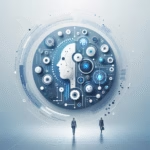How Google’s AI Can Transform Health Professions Education
As the landscape of education continues to evolve, the integration of artificial intelligence into health professions education stands out as a pivotal shift that can enhance learning and training outcomes. With advancements in AI technologies, institutions have the opportunity to create more efficient, personalized, and relevant educational experiences for future healthcare workers.
Key Takeaways
- Google’s AI advancements are set to revolutionize training in health professions.
- AI tools are promoting personalized learning and improving information retention.
- The shift can address skill gaps and enhance overall healthcare delivery.
Table of Contents
- Introduction
- Executive Summary
- What’s Happening
- Why This Matters
- Real-World Use Cases
- Opportunities and Risks
- Recommended Actions
- Frequently Asked Questions
- Cited Sources
Introduction
The intersection of technology and education has never been more crucial, particularly in the health professions sector. With Google leading the charge in AI developments, educators and decision-makers must recognize and leverage these advancements to foster a new era of medical training. Understanding how Google’s AI can reshape healthcare education is not just a trend—it’s a strategic imperative that can redefine the future of healthcare delivery.
Executive Summary
Recent initiatives from Google highlight a focused approach to integrating AI into various fields, notably in health professions education. The Google Research Blog underscores significant advancements in machine learning and AI applications that can enhance training within healthcare settings. As AI technologies proliferate, they offer educational institutions innovative tools to improve student engagement, personalize learning paths, and increase the efficiency of training programs, which is essential for addressing evolving healthcare needs.
What’s Happening
Google is actively developing AI tools aimed at supporting educational frameworks across industries, particularly in healthcare. Recent articles indicate that Google’s AI technologies are being implemented to create enhanced learning environments, where health professionals can access tailored resources that cater to their specific educational needs and preferences. For example, Google’s AI-powered video editing tools and writing aids in applications like WhatsApp are part of a broader effort to implement intelligent systems that assist in learning and performance.
Why This Matters
The integration of AI in education is not merely an enhancement—it’s a necessary evolution. As health professions face increasing demands for skilled practitioners, leveraging such technologies can streamline training processes and reduce the time needed to equip students with essential skills. This shift also opens up opportunities for higher engagement and improved educational outcomes, making it imperative for educational institutions to adopt these technologies to remain competitive and effective.
Real-World Use Cases
Several institutions are already exploring AI-enhanced training methods. For instance, universities are utilizing AI algorithms for personalized learning experiences, adapting course materials to fit individual learning speeds and styles. Moreover, organizations are incorporating AI-driven simulations in clinical skills labs, allowing students to gain practical experience in a controlled but realistic environment. These initiatives aim to better prepare students for the complexities of modern healthcare.
Opportunities and Risks
The rising adoption of AI offers substantial opportunities for innovation within education, but it also poses risks. While personalizing learning through AI can significantly enhance training efficiency, concerns around data privacy and the reliability of AI decisions must be addressed. Institutions must remain vigilant about the ethical implications of AI usage while fostering a culture of innovation.
Recommended Actions
To capitalize on the advantages of AI in health professions education, decision-makers should:
- Invest in AI technologies that tailor educational experiences to individual student needs.
- Foster partnerships with tech companies, such as Google, to access the latest educational tools.
- Implement robust data protection policies to safeguard student information and build trust in AI applications.
Frequently Asked Questions
- Q1: Why is this trend important right now?
A: The integration of AI can significantly enhance the quality and efficiency of healthcare education, crucial for addressing the urgent need for skilled professionals. - Q2: What’s the impact on businesses or teams?
A: Businesses can expect a more competent workforce equipped with practical skills and knowledge tailored to real-world healthcare challenges. - Q3: Who are the leading platforms, tools, or companies involved?
A: Google is at the forefront, with initiatives that enhance educational frameworks, supported by various startups and academic partnerships in the health sector.










